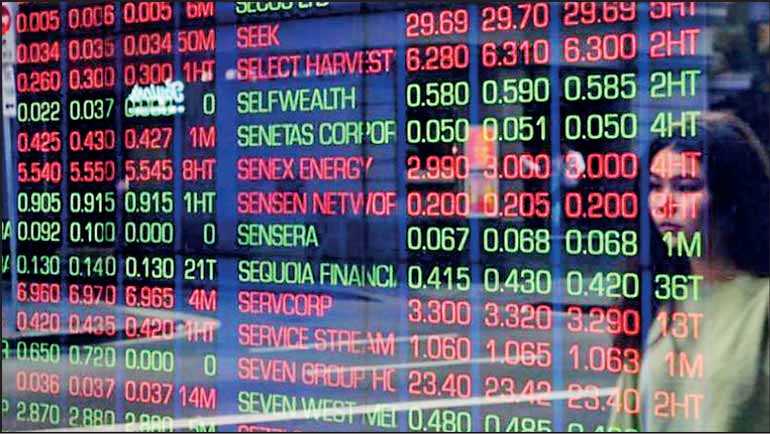Thursday Feb 19, 2026
Thursday Feb 19, 2026
Wednesday, 7 April 2021 00:00 - - {{hitsCtrl.values.hits}}

Strong economic data from China and the US has helped propel world stocks to record highs. Credit: AAP
LONDON (Reuters): World stocks hit record highs yesterday, supported by strong economic data from China and the US, while currency and bond markets paused for breath after a month of rapid gains in the dollar and Treasury yields.
Equities as measured by the 49-country spanning MSCI All Country World Index hit an all-time high as European stocks played catch-up with gains in Asia and Wall Street overnight in their first trading session since the Easter holiday.
The pan-European STOXX 600 index hit a record high after the open in Europe.
Profit-taking pushed Japan’s Nikkei down 1% and dragged on the Shanghai Composite.
The S&P 500 closed Monday at a record peak and futures dipped 0.2% yesterday.
On the heels of a bumper US jobs report last Friday, March data showed services activity hit a record high. China’s service sector has also gathered steam with the sharpest increase in sales in three months.
“We think investors should not fear entering the market at all-time highs,” said Mark Haefele, Chief Investment Officer, UBS Global Wealth Management.
“We recommend continuing to position for the reflation trade as the economic recovery gathers pace - data released Friday showed US nonfarm payrolls surged by 916,000 in March, the biggest gain since August. “
The yield on benchmark 10-year US Treasuries fell to 1.7093%, while the dollar has mostly missed out on a big bounce from the strong data and held at $ 1.1819 per euro a day after posting its steepest drop since mid-March.
Elsewhere, Swiss lender Credit Suisse sought to draw a line under its exposure to the implosion of hedge fund Archegos Capital, announcing the debacle would cost it about $ 4.7 billion and two senior executives their jobs.
The steadying Treasury yields and dollar follow a charge higher over the first quarter, with an 83 basis point rise in 10-year yields, the biggest quarterly gain in a dozen years, and a 3.6% rise in the dollar index – the sharpest since 2018.
“Bonds have settled down now,” said Omkar Joshi, portfolio manager at Opal Capital Management in Sydney, after a hard and fast selloff. “I think markets can keep powering on from here.”
Minutes from the March meeting of the US Federal Reserve, due today, are the next focus for bond markets, although they will not address the most recent data surprises and markets have run far ahead of Fed projections for years of low rates.
Fed funds futures have priced in a hike next year while euro/dollar markets have it priced by December. “What needs to be tested is how the Fed reinforces and reassures on its flexible average inflation target policy,” said Vishnu Varathan, head economist at Mizuho Bank in Singapore.
“The dollar’s past few weeks of movement reflect markets moving ahead despite what the Fed has said.” Currencies were fairly quiet through the Asia session, and hung on to small gains on the dollar. The Australian dollar traded at $ 0.7647 after the Central Bank held policy settings steady, as expected.
The yen was a fraction softer at 110.21 per dollar, while sterling touched a two-and-a-half week high of $ 1.3919.
The dollar’s wobble helped oil prices recoup some losses suffered on Monday on worries a new wave of COVID-19 infections in Europe and India could curtail energy demand.
Brent crude futures rose 1.4% to $ 62.98 a barrel while US crude climbed 1.5% to $ 59.56 a barrel. Gold tacked on 0.2% to $ 1,732 an ounce.